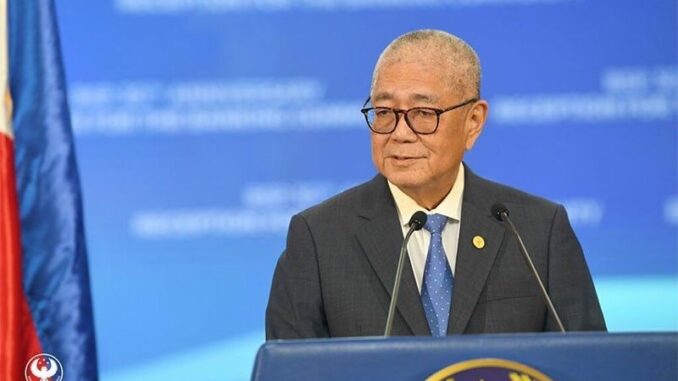
‘We’re still in restrictive territory’
MANILA, Philippines — Despite the series of rate cuts it delivered last year, the Bangko Sentral ng Pilipinas (BSP) said monetary policy remains restrictive, leaving room for more easing this year.
In his first public appearance this year during an event hosted by the Rotary Club, BSP Governor Eli Remolona Jr. said the central bank is targeting a natural or “Goldilocks” rate in which the key interest rate is neither too high nor too low.
“But I can’t tell you (the number) and it’s a very imprecise number. But what I can tell you at this point is that we’re still in restrictive territory compared to what we think the Goldilocks rate is. So there’s still some room to ease,” he said.
Since August 2024, the BSP has lowered borrowing costs three times and reduced the reserve requirement ratio for big banks to seven percent from 9.5 percent.
However, Remolona said monetary policy works with a lag.
“We begin to see an effect in about a year, with the peak effect around 18 months. Our data told us it was time to act, so we eased ahead of most other central banks, including the US Federal Reserve,” he said.
The Monetary Board slashed policy rates by 25 basis points during its policy meeting last month, bringing the key rate down to 5.75 percent. The BSP has delivered a total of 75 bps rate cuts since August 2024.
While the central bank has taken steps to loosen monetary policy, Remolona said it is “still too soon to declare victory” against inflation.
“We’re facing new kinds of challenges, a very unusual kind of uncertainty. And so we have to be a little more cautious than before,” the BSP chief said.
He said the challenges include the potential economic fallout from US policy shifts such as tariffs or changes in immigration policy.
While these actions could disrupt global trade, Remolona said the Philippines’ heavy reliance on services trade – such as business process outsourcing (BPO) and remittances – offers some insulation.
“We’re in better shape than many other countries in terms of services trade, which is harder to impose tariffs on. But there are concerns about goods trade and broader impacts on the economy,” he said.
Remolona said the US Federal Reserve has become more cautious than before as the market expects the Fed to reduce interest rates by 25 and 50 bps this year compared to the previous estimate of 100 bps.
But the BSP chief reiterated that the Monetary Board does not solely rely on the policy moves of the Fed.
“We look at our own data, and what the Fed does is just another piece of data. It goes into our analysis, it goes into our models and we decide on monetary policy based on that,” he said.
The Monetary Board will have its first policy review on Feb. 20.


Be the first to comment